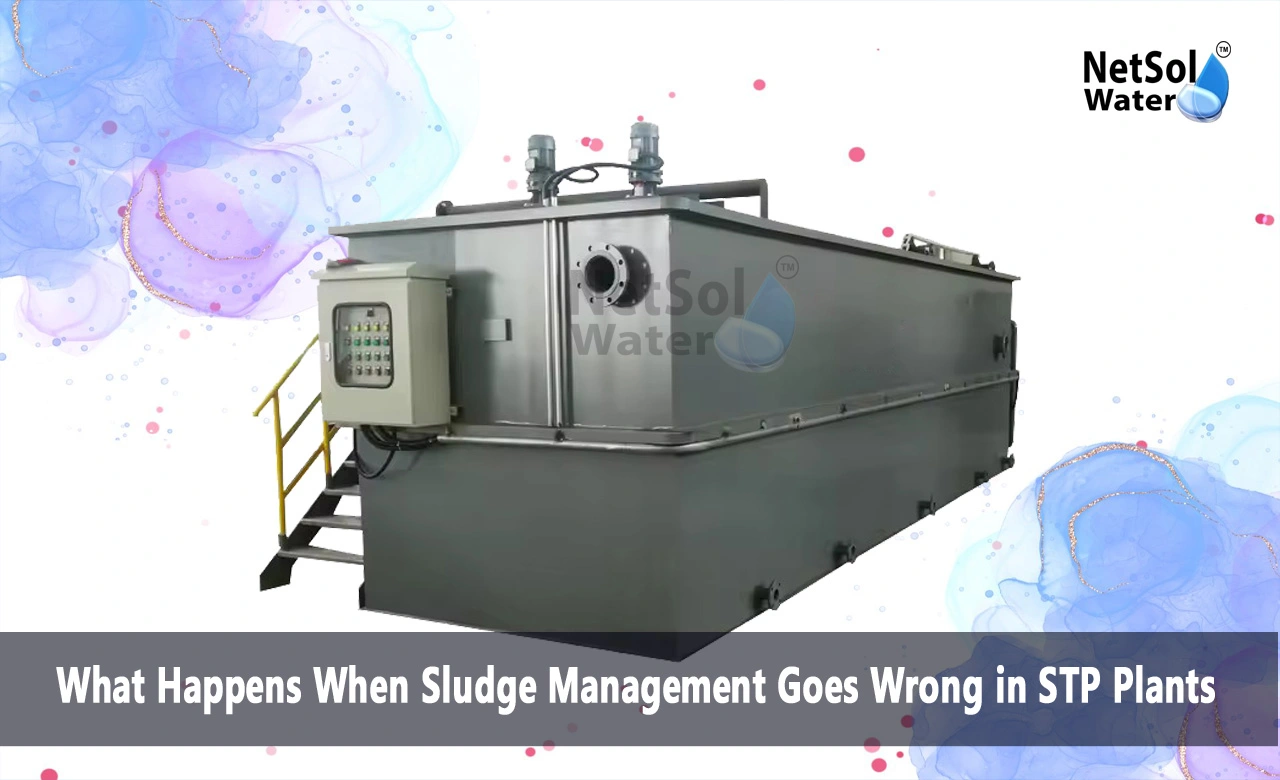What Happens When Sludge Management Goes Wrong in STP Plants?
Municipal sewage treatment plants (STPs) serve an indispensable function in protecting public health and the environment by treating wastewater before discharging it back into waterways. However, the process of sewage treatment also generates a by-product called sewage sludge - a semi-solid, nutrient-rich residue containing concentrated levels of pollutants. Responsible sludge management through proper treatment and disposal is crucial, as mishandling this sludge can lead to catastrophic environmental degradation and risk human health. Let's take a closer look at the severe consequences that can arise when sludge management at STPs goes wrong.
Water Contamination
When sewage sludge is not effectively contained, treated, and disposed of securely, it can easily leach back into water resources like rivers, lakes, and groundwater aquifers. This sludge carries highly concentrated amounts of heavy metals (lead, cadmium, copper), persistent organic pollutants, disease-causing pathogens, drug residues, and excess nutrients. The infiltration of these contaminants into water bodies renders them unfit for human consumption, potentially exposing communities to health hazards. It also gravely disrupts delicate aquatic ecosystems by triggering toxic algal blooms, eutrophication, and bioaccumulation up the food chain.
Public Health Risks
In addition to water contamination risks, improperly managed sewage sludge poses a severe threat to public health through other exposure pathways. The sludge can contain excessive levels of harmful microorganisms like bacteria, viruses, protozoa, and helminth eggs that cause serious infectious diseases. These pathogens can spread through uncontrolled dumping, the use of untreated sludge as a soil amendment, or aerosolisation. Proper treatment to inactivate pathogens, like anaerobic digestion, is essential before sludge disposal or reuse. There have been numerous documented cases of disease outbreaks linked to sludge mishandling.
Foul Odors and Air Pollution
The organic matter and compounds present in raw sewage sludge release incredibly pungent and offensive odours when exposed to the air. Open dumping, improper storage, or inadequate treatment processes can lead to the release of these foul odours, severely degrading air quality and quality of life for nearby residents and businesses. Additionally, sludge handling can release airborne bioaerosols containing pathogens, endotoxins, and volatile organic compounds that are hazardous when inhaled.
Soil Deterioration
The attractive option of utilising treated sewage sludge as a soil amendment in agricultural practices can fail if not done cautiously. Untreated sludge may contain excessive levels of heavy metals that can accumulate in soils over time, severely limiting its fertility and ability to support plant growth. Toxic elements like lead, cadmium, and mercury can then contaminate food crops grown in these soils, posing risks to humans and wildlife through biomagnification up the food chain.
Greenhouse Gas Emissions
Inadequate sludge processing and storage conditions can create anaerobic environments that promote the formation and release of methane and nitrous oxide - two potent greenhouse gases that contribute significantly to climate change impacts. Methane, in particular, is produced when sludge is allowed to anaerobically digest haphazardly without controlled systems in place. Comprehensive sludge treatment that captures these emissions is crucial.
Conclusion:
In many cases around the world, sludge management protocols are compromised due to budgetary restrictions or lack of enforcement, leading to public health emergencies, environmental crises, and irreversible damage to ecosystems. To mitigate these risks, it is essential to establish a well-designed infrastructure for sludge handling, with clear guidelines for treatment, transportation, monitoring, and regulated reuse/disposal practices. Municipal sewage agencies must prioritize investing in robust sludge management to ensure sustainable operations that protect communities and the environment.
Netsol Water is Greater Noida-based leading water & wastewater treatment plant manufacturer. We are industry's most demanding company based on client review and work quality. We are known as best commercial RO plant manufacturers, industrial RO plant manufacturer, sewage treatment plant manufacturer, Water Softener Plant Manufacturers and effluent treatment plant manufacturers. Apart from this 24x7 customer support is our USP. Call on +91-9650608473, or write us at enquiry@netsolwater.com for any support, inquiry or product-purchase related query.



